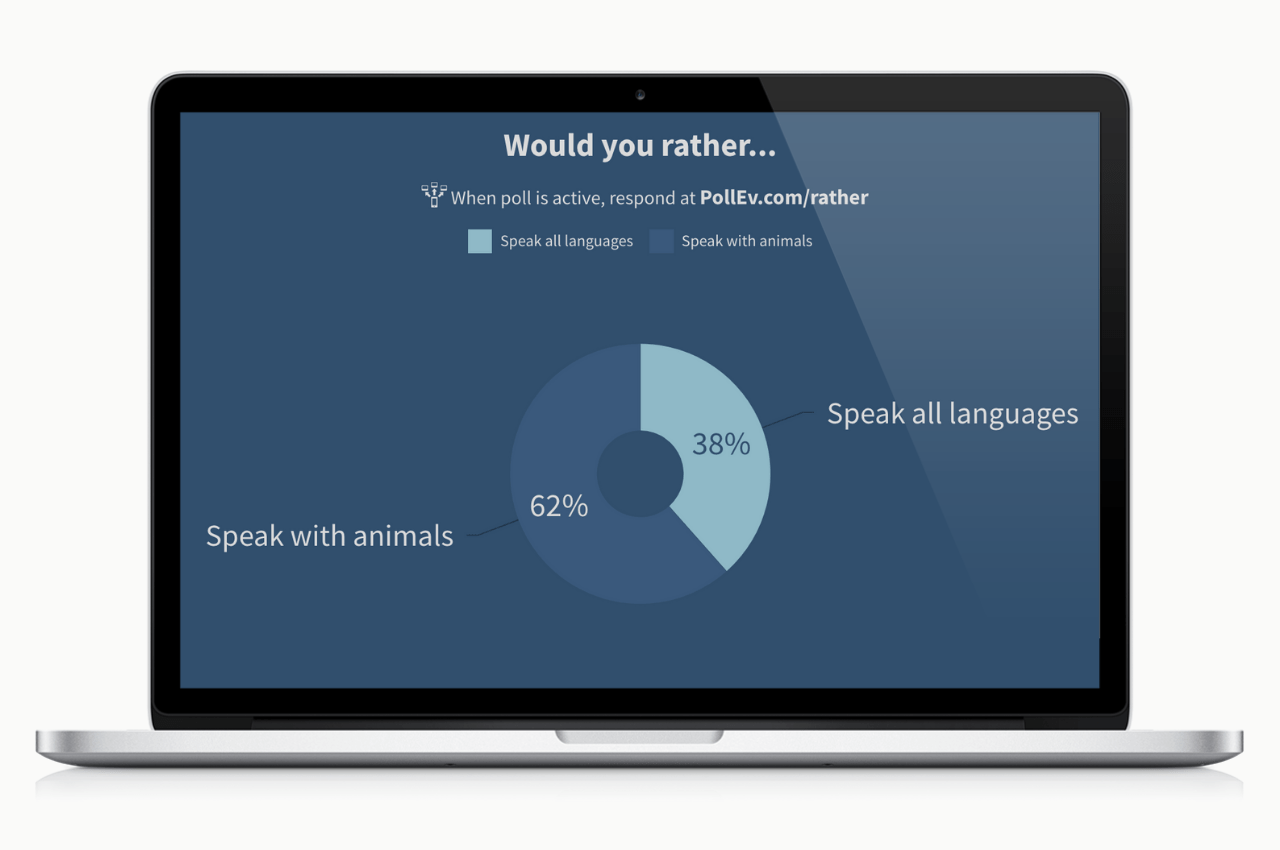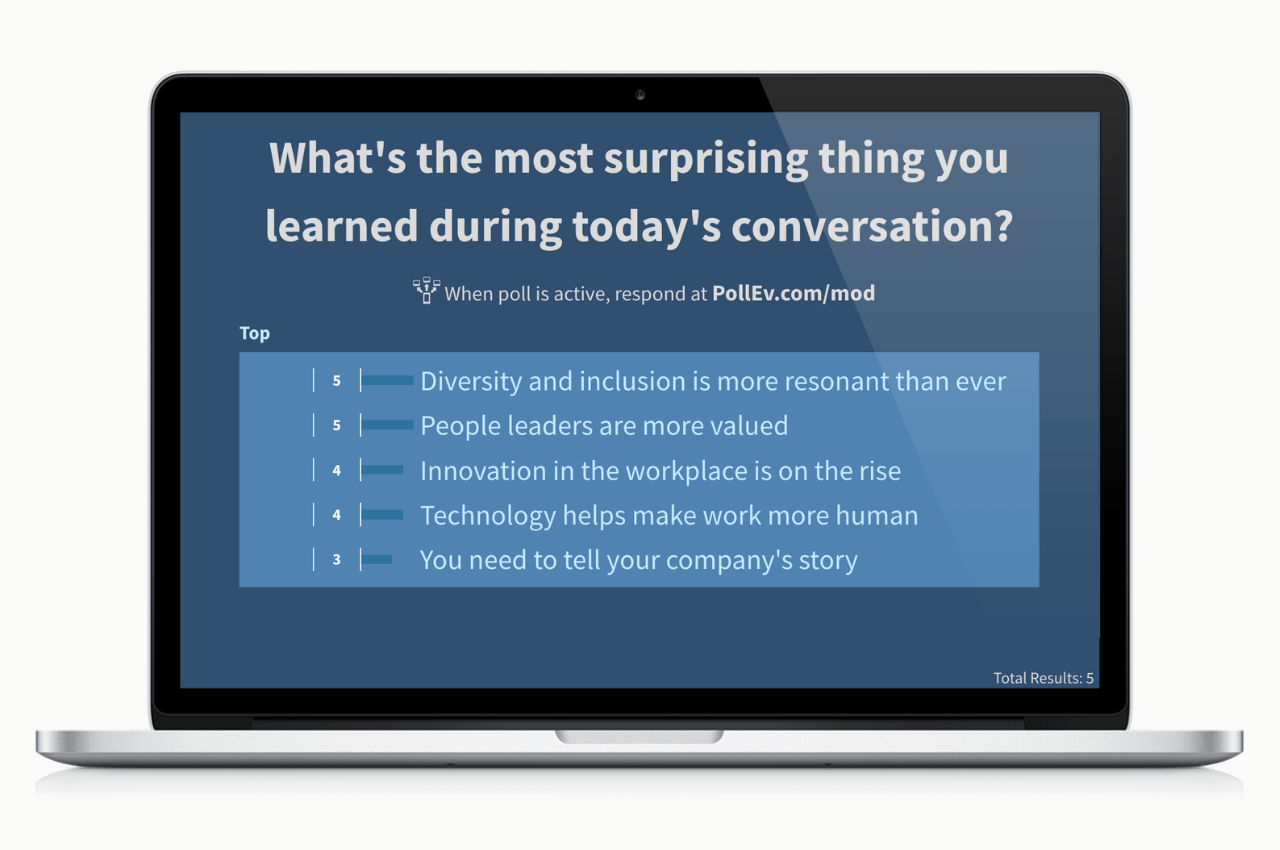9 must-know tips for successful panel moderation

At first glance, being a panel moderator seems easy. You sit up on stage with a group of experts while they do all the talking — all you need to do is make a few brief introductions and keep an eye on the time. But, anyone who’s ever actually handled panel moderation knows that it’s a little more challenging than you might assume.
As the moderator, you serve as the audience’s advocate. While the experts are the ones dishing out the actual information, it’s your job to stay neutral, keep things on track, and make sure that the conversation is relevant and engaging.
Not so easy, right? Being a panel moderator warrants some serious planning and preparation to ensure that the discussion is productive, focused, and enlightening.
What do you need to know to successfully guide the conversation and guarantee that your audience walks away with what they came for? Here are nine key tips to keep in mind.
1. Answer three simple questions
Since the panel format is an open discussion more than anything, it’s tempting to assume that an engaging presentation will just fall into place. However, that assumption often leads to unrelated tangents that distract from your goal.
In order to make this experience valuable for your audience, you need to keep things focused. Make sure you’re able to answer the following three questions before doing any further planning:
- Who is this panel discussion for? Who is the target audience?
- What is the audience’s goal in listening to this discussion?
- What do you want your audience walk away with?
Getting really clear on your answers to these three questions will help you plan a conversation that contributes to your main objective — even when distractions and digressions crop up.

Read more: 4 easy roundtable discussion mistakes (and how to fix them)
2. Select the right panelists
A great panel discussion starts way before you ever step foot on that presentation stage. Even the very best moderators know that there’s not enough magic in the world to transform a conversation between dull panelists into something lively and engaging.
When picking your panelists, make sure that you pick experts on your chosen topic who also have some public speaking experience. You need panelists that can deliver information in a compelling way. Also, look for diversity in your panelists’ backgrounds and viewpoints. Those different perspectives will make the discussion far more interesting.
3. Make sure you do your research
Of course you need to do some research in order to identify and select fitting panelists. But, you should also invest some time in researching the actual topic they’ll be discussing.
Even though you won’t be the one providing information and advice, having some familiarity with the subject will empower you to ask more thoughtful and impactful questions, as well as recognize when the panel might be veering of track.
All of that’s pretty tough to do without any background knowledge of the topic.
4. Stay away from boring introductions
As the moderator, it’s your job to introduce your panelists to your audience. Keep these brief. Nobody wants to listen to you read a multi-paragraph bio for each of your participants.
It’s also worth seeing if you can make your introductions a little more engaging.
Whether it’s by sharing a little-known fact about each panelist, or having them answer a fun question, injecting a little more personality into these intros gets your audience invested in each of your panelists.

5. Have a plan for your questions
You’ll be the one who gets the conversation rolling, which means you should have a few solid questions in your back pocket to get things started.
After that, your audience will be the ones to ask questions of your panelists. However, make sure that you have a for handling audience questions so you don’t end up with chaos.
Can audience members ask questions at any time? Or will you have a Q&A session at the end? Will they ask their questions out loud or submit them somehow?
Get those details worked out and explicitly share them with your audience before you get started, so that everybody is clear on how and when they can get their own questions answered.
6. Encourage conversation
What makes a panel discussion so interesting is that it’s an open dialogue. It’s not an interrogation where panelists have to answer questions in a systematic order.
You’re here to facilitate this conversation. So, listen carefully so that you can ask thoughtful follow-up questions and encourage some respectful debate.
Yes, you need to keep the conversation moving, but that doesn’t mean you need to stick to a script.
7. Mix up your speaker order
Here’s a common trap that too many panel moderators fall into: They pose a question and then move down their line of panelists for answers — in the same order, every time.
“By the time the fifth panelist is answering the same question as four other people have answered, the odds they will contribute something interesting have dropped almost to zero,” says Scott Kirsner in an article for Harvard Business Review.
Remember to mix up the order. Also, keep in mind that not every panelist needs to answer every question. There’s no reason for them to chime in if they don’t have anything valuable to add.
8. Don’t be afraid to speak up
You know that the audience isn’t there to listen to you. But, as the moderator, you do need to know when it’s time for you to jump in.
Running short on time? Press pause on the conversation and let your panelists and audience know how much time is left. Feel like there’s a question that’s better suited for a specific expert, or one panelist you haven’t heard enough from? Direct a question to them.
While it doesn’t always feel like it, you’re the one in charge here. Don’t hesitate to jump in to keep things on track and act in the interests of your audience whenever you need to.
Read more: How to choose the best format for your presentation
9. Be prepared to wrap things up
Another thing that happens at too many panel discussions? You run out of time. And the conversation just ends. Your audience is left feeling like you just overloaded them with information and then sent them on their way.
Leave a few minutes at the end of the discussion to wrap things up. You can provide a brief summary yourself. Or, better yet, you can ask your panelists to do so.
Asking them, “What’s the most surprising thing you learned during today’s conversation?” sends your audience home with some food for thought (and likely some of the best nuggets from the discussion), without using the cliché closer of asking them for their final thoughts.
 Despite the fact that you’re not the one doing most of the talking and information-sharing, panel moderation is no easy gig. Use these nine key tips to host a successful panel discussion and ensure that your audience walks away with the information they wanted most.
Despite the fact that you’re not the one doing most of the talking and information-sharing, panel moderation is no easy gig. Use these nine key tips to host a successful panel discussion and ensure that your audience walks away with the information they wanted most.